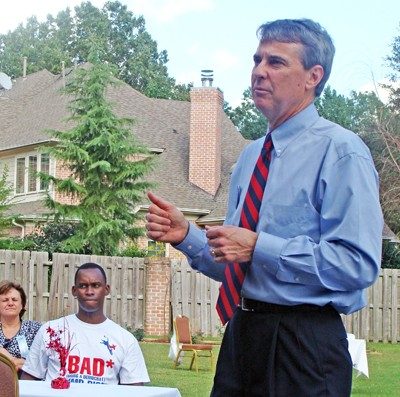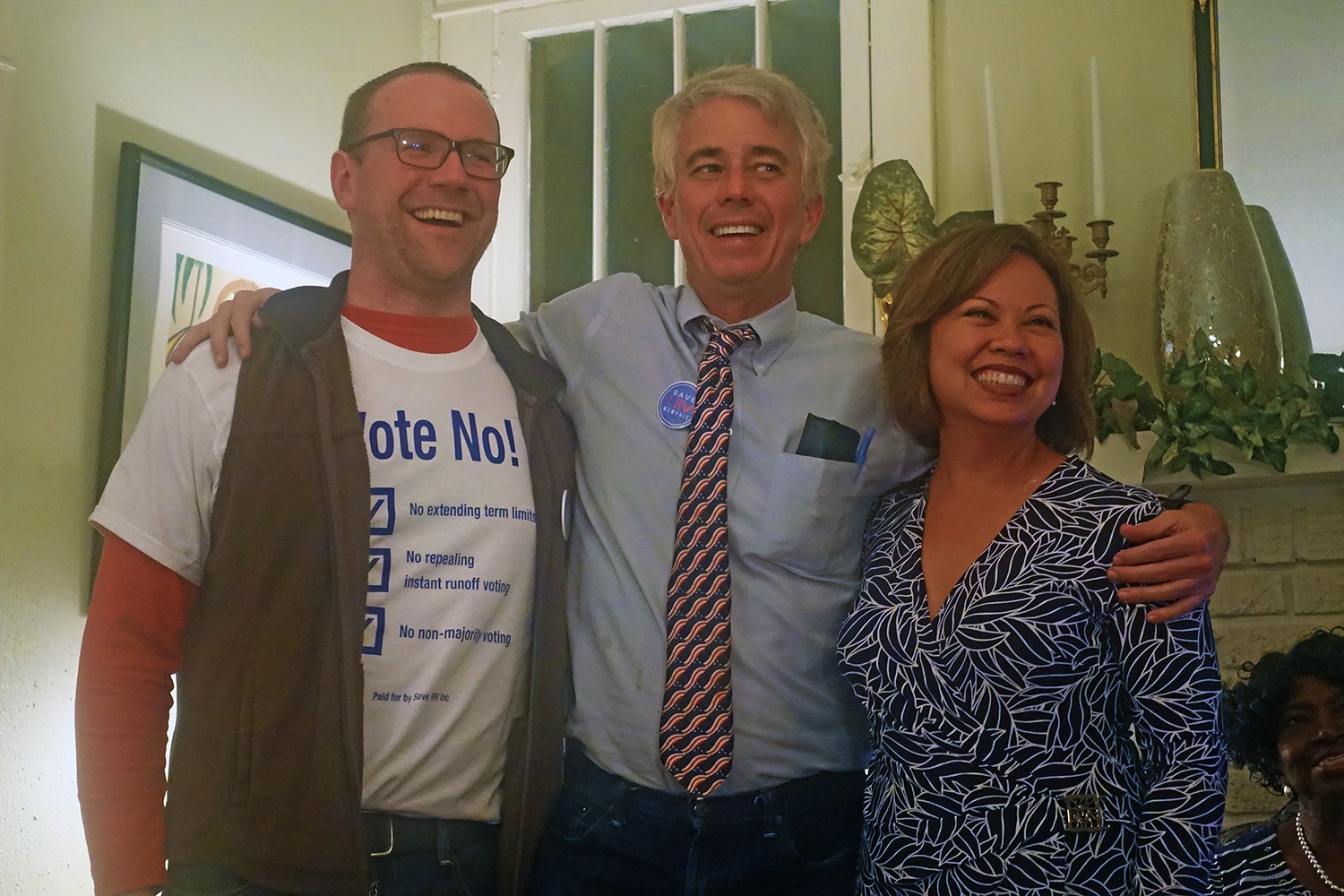“Shock waves” is too strong a term for the reaction, but a fair number of eyebrows have been raised by the surprise action of state Democratic Party chair Hendrell Remus in removing from power local Shelby County party chair Lexie Carter.
The action took place Thursday following a Zoom call between Carter, Remus, and others. Invoking what the state chair said was the absolute authority of the state party over local parties, Remus said Carter had not measured up to the needs of a coordinated Democratic campaign for the fall election.
He mentioned specifically the campaigns for District 97 state representative of Jesse Huseth, who opposes Republican incumbent John Gillespie, and that of Gloria Johnson of Knoxville against GOP U.S. Senator Marsha Blackburn.
Remus said he had sent a questionnaire to Carter asking for details of the local party’s readiness for election activity and received insufficient information in response.
Carter professed to be taken by surprise by her removal, having just, as she maintained, presided over the local party’s annual Kennedy Day banquet on September 5th and grossed upwards of $40,000 for party coffers.
She alleged that a number of disagreements and confrontations had occurred between herself and Remus at the recently concluded Democratic National Convention in Chicago.
Remus had apparently been considering the removal action well in advance, having discussed the possibility with potential ad hoc successors to Carter the previous week.
He said he would appoint four temporary co-chairs to guide the Shelby County Democratic Party (SCDP) until December, when a local party election would be held. The Flyer has learned that two of those invited to serve in that capacity are outgoing state Rep. Dwayne Thompson and City Council Chair JB Smiley.
Former local party chair and ex-County Commissioner Van Turner, who had assisted Carter in answering Remus’ questionnaire, raised concerns about due process in Carter’s removal and likened his action to the state Republican Party supermajority’s attempt to dominate over the actions of local government.
The new developments recalled the situation of 2016 when then-state Democratic chair Mary Mancini disbanded the Shelby County party following years of local controversy, including charges of embezzlement.
The local party was reconstituted in 2017 with Corey Strong as chair. So far, no names have surfaced as potential local candidates for the permanent chairmanship of SCDP.
As it happens, Remus will be giving up his own chairmanship in January, when his elected term ends. So far the only known candidate to succeed him is Rachel Campbell, chair of the Hamilton County (Chattanooga) Democratic Party and vice chair of the state party.
• Sarah Wilkerson Freeman, the Democratic nominee for the 8th District congressional seat, confirms that Susan Boujnah, a videographer who accompanied her to last month’s Democratic National Convention, is hard at work on an official campaign video, which will be released (presumably via social media) within the month.
Though Freeman has issued no formal debate challenge to Republican incumbent David Kustoff, Freeman observed that the NAACP will be holding an open forum for area candidates in Collierville on October 8th and that Kustoff is among those invited to participate.
Freeman, a resident of Germantown, likes to say she lives “within spitting distance” of her opponent.
• Former U.S. Senator Jim Sasser died at his North Carolina home last week. Sasser represented Tennessee in the Senate from 1977 to 1995 and later served as ambassador to Japan.


 JB
JB